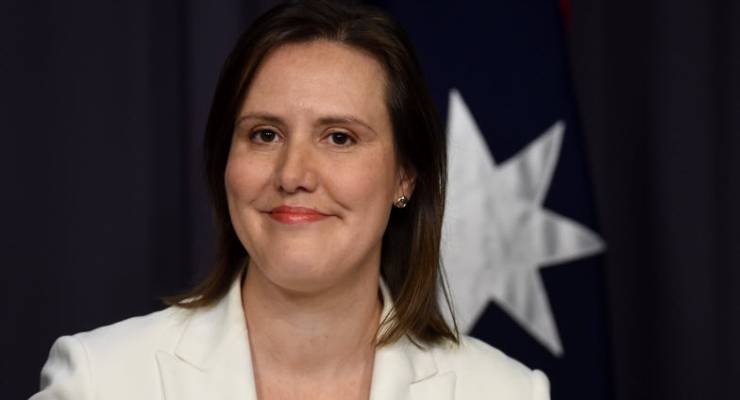
With headlines like “AMP execs warned they risk jail” gracing the front page of the Fin Review, anger and disillusionment with the sector seems ubiquitous. But this animosity wasn’t always so clear.
In fact, the Turnbull government was dragged kicking and screaming into the Hayne royal commission. Let’s have a look at just how much things have changed.
Barnaby Joyce
In a 2016 interview with Sabra Lane our disgraced former deputy prime minister did not just say the royal commission shouldn’t happen, he said the only people to benefit from it would be lawyers.
If you want something to happen immediately, I wouldn’t be going to a royal commission. The only people who are the beneficiaries of that are the solicitors. It goes on for years. If there are issues that need to be dealt with and dealt with immediately, ASIC and APRA have the powers of discovery. They also have the powers of prosecution and that is vastly more than a royal commission has.
However, perhaps in a moment of self-reflection, on Twitter last night he said he was “wrong” to argue against the royal commission.

Matthias Cormann
In 2016, the Finance Minister was in the pages of the Australian saying white-collar crime in the finance industry was under control.
I would completely reject the proposal that we are letting white collar crime get off easy … Whenever anybody does anything wrong, they have to have the book thrown at them.
Today, Matthias Cormann has agreed that the government would agree to extending the $75 million inquiry if Commissioner Kenneth Hayne requested an extension. The planned length of the inquiry was 12 months.
We will not protect anyone.
Kelly O’Dwyer
In August 2016, the Financial Services Minister put out a press release dismissing a royal commission into banking as a furphy.
A royal commission would go over old ground and would delay well-developed and important reforms, such as lifting the professional standards for advisers.
A royal commission would send the signal internationally that the government believes there are structural problems with our banking and financial system and could lead to significant repercussions for confidence, international investment, and our AAA credit rating.
In August 2017, O’Dwyer told ABC Radio’s Raf Epstein the commission would not fix anything, because, well there’s nothing to fix.
This idea that somehow our financial system is not operating well is completely false.
Today, Kelly O’Dwyer did a 180. She told the ABC’s Fran Kelly that those found wanting by the commission should be sent to jail.
We as the government are very disturbed by a number of the revelations that have been revealed recently at the royal commission… It is fair to say that giving the royal commission broad terms of reference, giving it broad autonomy to go after bad misconduct and to look into that right into the financial services sector was absolutely the right thing to do.
Malcolm Turnbull
In 2016, Malcolm Turnbull was vying for the prime ministership. In an election debate in front of a Western Sydney audience, he argued bankers shouldn’t be put in the dock.
Our banking system is a very important part of our financial stability. What Bill is proposing, as he said in an article he had in the Telegraph the other day, he said in his heading, ‘Time to put the banks in the dock’. Now ‘the dock’ is where the criminal stands — the accused person stands in a criminal trial. So here you’ve got Bill, who wants to be prime minister of Australia, who says you should line the banks up as though they’re accused of a crime, as though they’re all criminals.
Instead of expressing shock at Shorten’s folly, the audience cheered. Turnbull, dismayed, replied “let me just say to you, [we] want to be very careful; we need to be very careful what we wish for here.”
The Prime Minister seems to have gone quiet on the issue more recently.









Clearly, more than Bankers and Financiers have, are, being exposed by Royal Commission. The cancer of corruption enveloping our country is being lanced for all to see and acknowledge.
I think Mr Turnbull and his conniving cohort might also be on the record as saying a Federal ICAC is totally unnecessary, nothing at all to found, trust me …I’m a banker.
Lovely sequencing of quotes old and now recent- as if Turnbull and Co did not know what a mob of shysters and charlatans hold the purse strings of this country. No wonder they had to be dragged kicking and screaming into the Royal Commission.
Even with one of their own namely Kenneth Hayne running the show, it is impossible to perfume the stench emanating from the dock.
Highly unlikely anyone of these bastards with see inside a prison. After all as Guy Rundle says, this is the system. Screw the peasants and punters for all you can.
“let me just say to you, [we] want to be very careful; we need to be very careful what we wish for here.” At least about that he was right, wasn’t he? Perhaps not in the way he meant though. Hayne isn’t at all the tame patsy they might have hoped for and the Counsels Assisting are right on the job. Hayne has the chance now to go down in history as the initiator of a major restructure of a deeply corrupt finance industry. Who would pass that up?
The LNP needs to dodge the anger of the public. What better way than throwing some token bankers into jail! Then business as usual under the government regulator.
By golly these revelations are going to make it difficult for kelly and Mathias and Malcolm to continue to attack the Industry Super Funds